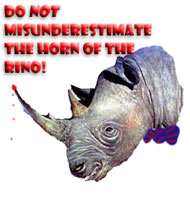August 25, 2005
Still More Plum Blogging
In comments to my earlier post on the money P.G. Wodehouse made on the sale of his novel Thank You, Jeeves, to Cosmopolitan, our pal Rachel (if I may be so bold) states that Plum wuz robbed. As I say, I dunno. But I do know that the Master had a very real interest in the remunerative end of his art. Allow me to quote some more from Uncle Fred In The Springtime:
Poets, as a class, are business men. Shakespeare describes the poet's eye as rolling in a fine frenzy from heaven to earth, from earth to heaven, and giving to airy nothing a local habitation and a name, but in practice you will find that one corner of that eye is generally glued on the royalty returns. Ricky was no exception. Like all poets, he had his times of dreaminess, but an editor who sent him a cheque for a pound instead of the guinea which had been agreed upon as the price of his latest morceau was very little older before he found a sharp letter on his desk or felt his ear burning at what was coming over the telephone wire.
Heh. Plum never made any bones of the fact that he was in it for the money. In this, he was a refreshing throwback to the pre-Romantic notion of artisanship, the idea that writing, painting or composing was a craft just like any other and that the artisan ought to sell the product of his skills the same as any other craftsman. (What is refreshing about it is that he didn't feel the need to apologize or obfuscate about his desire to make a good living.)
Posted by Robert at August 25, 2005 12:16 PM | TrackBack"the artisan ought to sell the product of his skills".
Of course.
But here's the rub: Whether or not you make a dime, you are still an artist. It's better to make money, but your worth as an artist is not judged by your salary. Many of our greatest artists died in poverty.
I have gone through long fallow periods when I was unable to get a job acting. But if someone asked me what I did during those times? I would say, "I'm an actress."
It's a mindset. Not a salary.
Posted by: red at August 25, 2005 12:27 PMOh, and you write "the artisan should sell his product" as though it's an easy thing. haha! Yeah, right.
If you sell your stuff, great. Awesome! But it's a process, a journey - not an end result. You could make it big with one book, and never publish anything again. Or - you might publish 15 books before you hit the big time.
It's not as easy as saying: "Let me go out there and sell my book." Voila!
Because there will be times (sometimes years) when you have, say, writer's block - or you can't get a damn thing published. Madeleine L'Engle went through ten years - TEN YEARS - of rejection slips - before Wrinkle in Time was published.
She writes very eloquently of those bleak times. And of having weeping jags, realizing she was a "failure" (in terms of monetary worth) ... total self-doubt, blah blah - but she describes the turn-around for her, the moment of revelation. She had put away her typewriter, thinking: I cannot take the rejection ANYmore.
But then, like a flash of light, she realized: "I will be a writer whether or not I ever publish another word. It's not 'what I do'. It's 'who I am'."
Now she ended up getting a HUGE break with Wrinkle in Time - so much so that she is one of the most successful writers of our time. In terms of monetary worth.
But that's not where she gets her inspiration. That's not why she writes.
Posted by: red at August 25, 2005 12:32 PMWhen you consider how much pleasure Plum has brought to the multitudes, he wuz robbed. Hillary Clinton got $8 million for her last turgid tome. And I'd wager that Thank You, Jeeves outsold Living History by a whole bunch--even just within Plum's lifetime.
Posted by: Rachel at August 25, 2005 12:35 PMAgain: WORTH is not always connected to SALARY.
It doesn't matter that Hilary's book made more money. Of course it did. She's a massive public figure. The tome may be turgid ... but it doesn't matter. Pamela Anderson's book is probably making a bundle, too.
Does that mean that Ian McEwan is LESS of a writer? Or Cormac McCarthy? Or Annie Proulx? Absolutely not.
One of the greatest - literally - actresses I've ever worked with - makes minimum Equity wage. Like all the other Equity actors. It doesn't matter. She is a genius. I wish SHE would be paid millions of dollars for her work ... but that's not the way the world is. And she's okay with that.
her worth as an artist is not attached to a salary.
Posted by: red at August 25, 2005 12:41 PMNo, no, no, Red. I'm talking cosmic worth here. In the grand scheme of things. If life were fair. Also, Plum's not the only one who wanted to make an honest living out of his craft. Samuel Johnson: "No man but a blockhead ever wrote, except for money." And George Bernard Shaw, the good Fabian socialist was reportedly a very shrewd negotiator and very well paid.
Posted by: Rachel at August 25, 2005 12:45 PMOf course, it looks as if all but a few of us bloggers are blockheads.
Posted by: Rachel at August 25, 2005 12:46 PM"Your worth as an artist is not judged by your salary."
No, of course not. That's not what I meant. What I was getting at was the notion that arose in the 19th Century that an artist who tried to or succeeded in doing well was somehow a sellout to his or her Muse, that such success somehow makes the art that much less authentic. There are many people around who believe that dying in poverty is a prerequisite to being considered a great artist.
Posted by: Robbo the LB at August 25, 2005 12:49 PMOh, I agree with everything you're saying ... Just putting a different spin on the concept of "worth", based on my own experience.
Of course most artists want to make an honest living. But to just say "go sell your craft" is easier said than done. That's all I mean.
My personal idol Cary Grant thought that Operation Petticoat was a better movie than Notorious because it made more money. Now - nothing against Operation Petticoat - but in my opinion - just like you said - the "cosmic worth" of Notorious FAR out-trumps Notorious. But he was a practical man, who came from poverty, and he liked his movies to make money. No shame in that at all.
But cosmic worth? You could argue til you're blue in the face that Operation Petticoat is better than Notorious - and I jsut couldn't believe you!
Same way with Hilary's book and Plum's. No way could I be convinced that HIlary's book is a "classic" or better than other classics. I'm sure it's a dreadful book. Does she write in the same droning monotone as her speaking voice? Jeez, lady, work on your voice so you don't put me to sleep!
I was just saying that "worth" (in a cosmic sense) has more to do with the quality of work - than with what you are paid for said work.
But it was the tone of - "Just go out and sell your stuff" which I thought was amusing. As someone who works her ass off to "sell my stuff" and only sometimes see the fruits of her labor - this stuff has huge resonance for me.
Whether or not I sell a damn thing, I will STILL feel comfortable saying, "I'm an actress."
Posted by: red at August 25, 2005 12:54 PMBTW, Rachel, you should read some of the letters of J.S. Bach, who was forever griping about how his employers were ripping him off and how damned expensive everything was. He once remarked about how good a sickly season was for him because it meant he got paid for playing more funerals.
Posted by: Robbo the LB at August 25, 2005 12:54 PMRobbo - as someone who pretty much hangs out with only artists (actors, writers, dancers, singers) I can say that pretty much 100% of them want to make a living. And they're all talented.
Most people outgrow the "poverty" fantasy by the time they leave college.
Also: I have discovered that anyone who glamorizes poverty and being an unwashed "struggling actor" is usually talent-less.
People like that rarely become successful.
The ones who become successful are the ones who work hard, treat it like a business, and STILL manage to maintain their idealism.
Posted by: red at August 25, 2005 12:56 PMOops - noticed a typo in my 12:54 comment:
It should read:
-- my opinion - just like you said - the "cosmic worth" of Notorious FAR out-trumps Operation Petticoat
Posted by: red at August 25, 2005 12:58 PMRobbo, I actually heard some of those Bach letters on NPR, I think, a few years ago. Talk about cosmically unfair. The poor genius bastard with his gazillion kids going hat in hand to various syphilitic aristocrats in order to get a buck or two to hold body and soul together.
Posted by: Rachel at August 25, 2005 12:59 PMRobbo - and the whole 'sellout to the Muse' thing ... The only artists I have really noticed this being common with are poets and photographers.
Because if you think it's hard to make a living as an actress - it's exponentially harder for poets and photographers (at least photographers who are interested in being artists - not advertisers).
To a photographer - often that is the choice, that is the reality:
1. Starve and take my own pictures. And keep Ansel Adams and Diane Arbus at the forefront of my mind, as inspiration.
2. Or "sell out" and take pictures of hand cream and vacuum cleaners.
It's a bleak choice, but that's the reality. And I get their point. I mean, the photographers I know don't whine about it ... they just know that it's a tough road. They apply for grants, they put up their own shows, they try to get their stuff seen ... but it's tough, man. And right on the other side of the fence ... is TONS of money ... if they would just accept that they should be happy and feel fulfilled taking pictures of toilet paper.
Posted by: red at August 25, 2005 01:03 PMI suppose you could say 'shut up' to those photographers and tell them they should be happy to make a living taking pictures, no matter what kinds of pictures they are.
Some photographers are able to make that leap. Good for them.
But some are not. It's like parts of their soul dies, when they contemplate selling out. That's not why they got into this thing. So they must keep going on their OWN path ... and wait for their cosmic worth to be recognized.
Posted by: red at August 25, 2005 01:06 PMIt's hard to imagine Michaelangelo or Shakespeare starving in squalor (at least, not indefinitely) just so he wouldn't have to compromise his artistic vision. Chatterton they weren't. Some of our greatest artists have had to make peace with the practical demands of the world around them and get on with it, with the added benefit that commercial success allowed them greater leeway to bring their own visions to the fore. Think of film directors like Coppola or Peter Jackson, who had to make successful "commercial" films before they could secure funding for more artistic films that were closer to their hearts.
Posted by: dillene at August 25, 2005 02:10 PM





